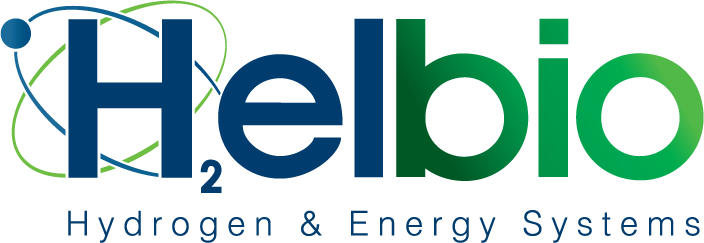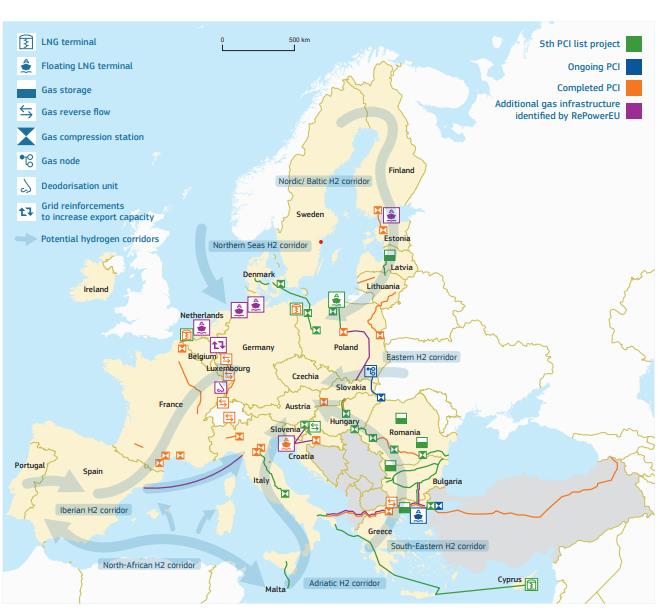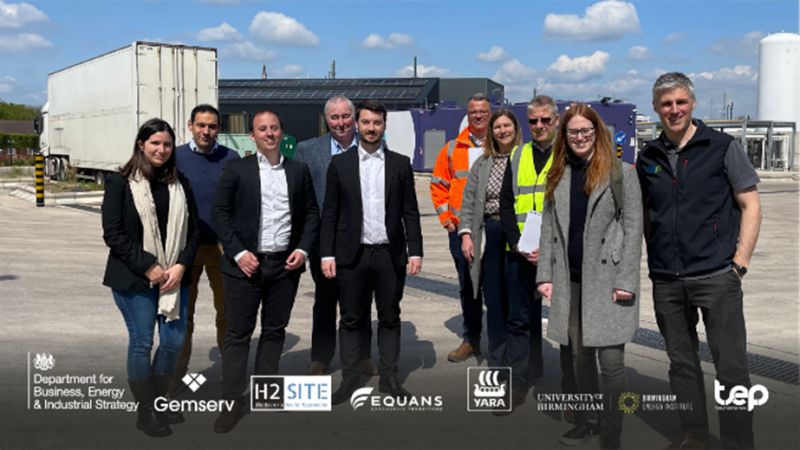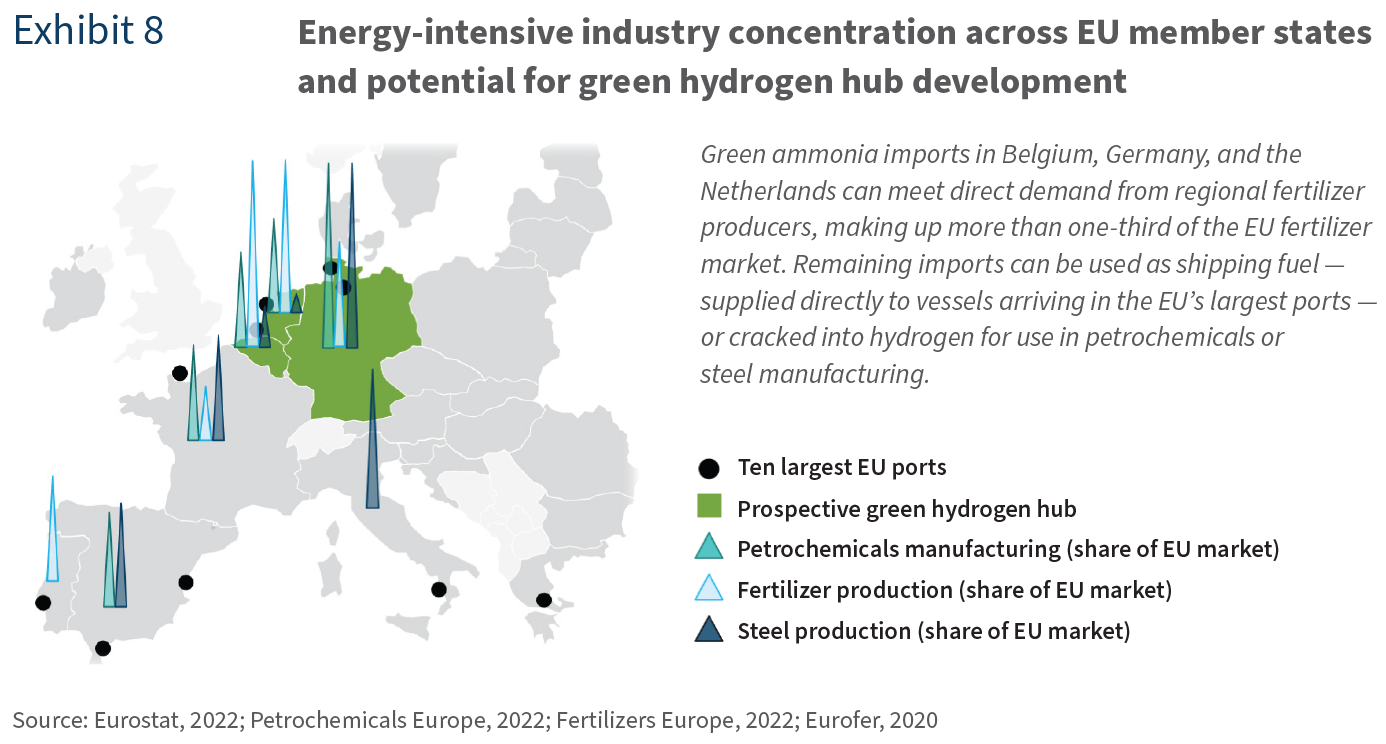Europe
RePowerEU: supporting the full switch of existing hydrogen production to renewables
The European Commission has announced its latest plan to reduce the EU’s dependence on fossil imports. RePowerEU will encourage a full switch from fossil-based hydrogen to renewable hydrogen, based on the use of carbon contracts for difference. A hydrogen utilisation target of 20 million tonnes per year has also been set, composed of 10 million tonnes from domestic production and 10 million tonnes of imports. Of these imports, the EU has also forecast 4 million tonnes will be in the form of hydrogen-as-ammonia. The new plan marks a significant increase in ambition from the Fit-for-55 package released in July 2021.
Government funding for ammonia energy in the UK
The Department for Business, Energy and Industrial Strategy (BEIS) will contribute to three ammonia energy projects via the latest funding round of its Net Zero Innovation Portfolio:
- The Tyseley Ammonia to Green Hydrogen Project near Birmingham, where a demonstration ammonia cracking unit based on H2SITE’s technology will be built to deliver hydrogen transportation fuel.
- The GreeNH3 project from Supercritical, ScottishPower and Proton Ventures to develop a renewable ammonia pilot plant based on Supercritical’s new electrolyser technology.
- And the Ammonia Synthesis Plant from Intermittent Renewable Energy (ASPIRE) project. Partners the Science and Technology Facilities Council (STFC) and Frazer-Nash Consultancy are developing autonomous renewable ammonia production plants in the UK.
Building ammonia supply chains into the Port of Rotterdam
The state government of Queensland has signed a new agreement with the Port of Rotterdam to develop an ammonia export supply chain between Australia and the EU. The announcement comes the same week that the Port of Rotterdam authority set a target of supplying industrial centers in northwest Europe with 4.6 million tonnes of hydrogen by 2030 - the vast majority of which will need to be imported. As to the question of when those imports will begin, the Rocky Mountain Institute has released a new report indicating the EU should be ready to receive renewable hydrogen as soon as significant capacity comes online in 2024.









